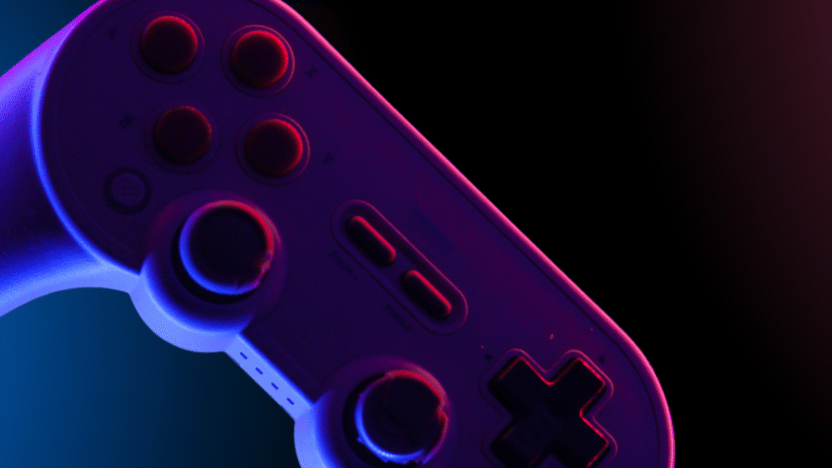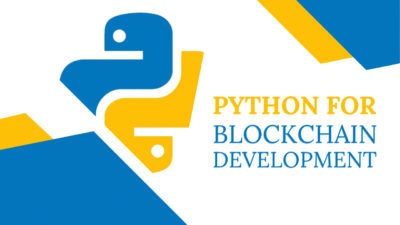Have you ever wondered what separates a good athlete from a great one? Or how a coach crafts a strategy in real time? What if a machine could see what even seasoned eyes miss?
AI’s influence is pervasive and cannot be ignored by those involved in sports, even those who prioritize physical activity. It is becoming increasingly integrated into various aspects of sports, from training and performance analysis to officiating and even fan engagement.
What if an AI could track every sprint, every breath, and every heart rate spike during training?
Could it not then help identify inefficiencies invisible to the naked eye?
Indeed, AI analyses player movements, stamina, and biomechanics to generate personalised training regimens. But do athletes truly benefit from such data-driven feedback?
Well, consider this: If AI detects patterns that often precede injury, wouldn’t you want to act before a sprain or tear occurs? Isn’t prevention better than a cure?
So, might it be fair to say that AI is not only enhancing how athletes train, but also how they sustain their careers?
So you want to change the game?
The scout leaned back, peered over his tablet, and smirked. “Used to be, I’d fly across states to watch kids play. Now? I’ve got an AI bot feeding me heatmaps, sprint speeds, pass success rates—even their sleep cycles.”
Is this the future we dreamed of? Or did we sell ourselves a technological fairytale?
AI Make Fans Feel Like Minimal Viable Products?!
What keeps fans glued to the game? The drama? The stars? Or the feeling that they’re part of the action? If you receive live updates about your favourite player, and enter a virtual stadium where you walk alongside legends, this is all made possible through Artificial Intelligence.
It powers personalised fan experiences, from content and recommendations to immersive AR/VR interfaces. But should fans be aware that AI also tracks their behaviours to optimise engagement? Is it worth trading a bit of privacy for a front-row experience from your couch?
Can AI Heal Before You Break?
Isn’t it ironic that career-altering injuries follow some of the greatest athletic feats?
How might AI intervene? By analysing biometrics and movement patterns, AI can detect anomalies and warn of potential breakdowns. But can a machine understand the human body better than a doctor?
Not necessarily alone but in partnership, AI can provide data-driven diagnoses and custom recovery plans. So, could we be entering an era where injuries are predicted, not just treated?
And if fewer injuries mean longer careers, shouldn’t we embrace the tech that helps?
Could Your Next Commentator Be A Robot?
When you watch a game, what enhances your experience: emotion or information? What if you could have both? AI now enables live tracking, automated replays, and statistical overlays. It even creates automated commentary that adapts in real time.
How Is AI being Used In Sports Today?
What if a coach could predict a player’s injury before it happens? What if a fan could relive the best moments of a game, tailored to their favorite players? What if scouting didn’t rely on gut feeling, but data-backed insights?
For Teams and Coaches: Is training still one-size-fits-all? Not anymore. AI development companies now create personalized training programs by analyzing each athlete’s movements, stamina, and stress. Why guess, when algorithms can optimize?
Can AI spot what human eyes miss? Yes. From micro-movements to fatigue indicators, AI tracks performance metrics that coaches use to shape better players—and safer ones.
But can it prevent injuries? It tries. By monitoring fatigue levels and workload, AI anticipates injury risks and offers prevention strategies. That’s not just smart, it’s game-saving.
And what about finding new talent? AI doesn’t sleep. It analyzes vast player databases across leagues, spots patterns, and surfaces hidden talent that traditional scouts might miss.
The NBA’s Second Spectrum system records over 1.2 million data points per game, tracking players’ movements, spacing, and decisions. Coaches receive live feedback about defensive gaps, off-ball movement, and fatigue indicators, things even elite scouts might miss.
For Fans
Can fans feel more connected to the game? Yes. AI creates tailored content experiences—real-time stats, custom highlights, exclusive behind-the-scenes footage. It’s fandom, reimagined.
What makes experiences immersive now? Virtual reality? Interactive replays? Augmented analysis? All powered by AI to turn watching into experiencing.
Is fan content becoming personal? Absolutely. AI curates game highlights, player interviews, and even merchandise ads based on individual preferences. It knows if you’re a Lakers fan or a Messi loyalist.
Southampton FC used AiScout to identify players remotely during COVID lockdowns, avoiding lost seasons and discovering talent that may have gone unnoticed.
Other Roles
- Can AI referee a match? AI flags offside positions, ball trajectories, and rule violations in real time, augmenting, not replacing, human referees.
- Who’s writing the post-match report? Automated systems now generate quick-turnaround recaps and summaries for digital platforms.
- What about ticketing and marketing? AI is the quiet engine behind dynamic pricing, predictive attendance, and personalized fan engagement campaigns, making every fan feel like a VIP.
Can AI Capture The Emotion Of A Nail-Biting Finish?
Perhaps not entirely. Yet when paired with human flair, doesn’t it offer richer, deeper insights for fans, both casual and die-hard? And in a world of information overload, isn’t smart curation a game-changer?
Can Artificial Intelligence Level Up Esports And Sports Betting?
Have you noticed how AI is not just limited to physical sports? In sports betting, it predicts outcomes with uncanny accuracy, raising both excitement and ethical questions. Could this blur the lines between gaming, gambling, and real-life sports? As AI stretches into sports medicine and rehab, do we risk becoming over-reliant on machines? Or is this the natural evolution of sports science?
Who Watches The Watchers?
If AI can detect injuries, craft strategies, engage fans, and even commentate, shouldn’t we ask: At what cost? Are these algorithms free of bias? Can they fairly assess all athletes, regardless of background or playing style? And what about the data? Who owns it? Who protects it? Can we ensure that AI empowers rather than exploits? Is it possible to embrace the benefits while still respecting privacy, ethics, and equity?
But Is It All Sunshine & Slam Dunks?
Artificial Intelligence development companies are selling dreams but is anyone talking about the nightmares? Who Owns an Athlete’s Body? When your fitness band knows you’re tired before you do, who owns that data? Is it the player, the team, the mobile app development companies that built the software, or the league? There’s an ethical grey zone. With HIPAA and GDPR regulations clashing across borders, leagues risk legal landmines if data is mishandled. In 2023, several collegiate programs faced backlash for tracking student-athletes without informed consent.
Can You Code Fairness?
AI is only as good as the data it’s trained on. If historical data shows racial or positional bias, AI may perpetuate those inequalities. An AI model used in a European football league undervalued Black players’ passing ability based on incomplete training data, leading to fewer playmaker recommendations for players of color. This isn’t just a tech problem, it’s a moral failing. AI needs diverse, transparent training if it’s to serve fairly.
Do We Lose The Human Element?
The French Open still uses human line judges, resisting the tide of AI-based officiating like Hawk-Eye and VAR. Why? Because, as Novak Djokovic put it, “sport is also about emotion.”
The roar of the crowd, the drama of a disputed call—it’s all part of the magic. Should AI sterilize that?
What’s Next For AI & Sports?
If you think we’ve peaked, think again. Here’s what Artificial Intelligence development companies and are building next:
- No two players are alike. Soon, athletes will have AI-generated, DNA-based training regimens tailored to their unique physiology. Think: “Moneyball meets Fitbit meets The Matrix.”
- AI and blockchain could usher in fan-voted substitutions, AI-predicted plays, and community-driven fantasy leagues where real-life decisions hinge on user data.
- Too much? Maybe. But it’s already happening in pilot leagues.
- With AI integrated into AR glasses, fans at the stadium might soon see live stats hovering over players. The experience becomes part-game, part-video game.
- MLB, for instance, is experimenting with augmented reality overlays during games for fans using smartphones.
Real AI in the Real World
| Organization | AI Application | Result |
| NBA (Second Spectrum) | Player tracking and strategy modeling | Increased tactical efficiency and player health |
| NFL (Digital Athlete) | Injury prevention through simulations | Reduced soft-tissue injuries by 28% in 2 seasons |
| Wimbledon + IBM Watson | AI-powered video highlights and stats | 3x fan engagement online during the 2023 championship |
| FC Barcelona + Pixellot | Smart camera tech for training and broadcast | Cost-efficient scouting across youth teams |
| Southampton + AiScout | Remote scouting and player assessment | Discovered 3 academy players during pandemic |
Should We Trust Artificial Intelligence To Run The Game?
Let’s go back to our initial question: “Is this what we wanted from AI and Sports?”
If you’re a team owner, you probably love the efficiency. If you’re an athlete, you’re wary of being reduced to an algorithm. If you’re a fan, you might miss the messiness—the human error, the unpredictable drama.
Maybe AI should be a coach, not a king. It should assist, not dictate.
Conclusion
If Artificial Intelligence predicts injuries and personalizes fan journeys, shouldn’t your sports tech rise to meet that future? What if an app could see what scouts miss or trainers overlook? Why follow when you can innovate? Let ADA help you rethink the playbook before others rewrite it for you.


